
Most insects don’t bug us. There are a few we even like. However, there is one family of insects that makes us downright irritable: leaf-footed plant bugs. There are several species of this insect in the Coreidae family that can be pesky to gardeners. The most prevalent are Eastern leaf-footed plant bugs (Leptoglossus phyllopus), which are active in the Southern United States from Florida to California. They become most active in late summer, when temperatures and humidity are high.
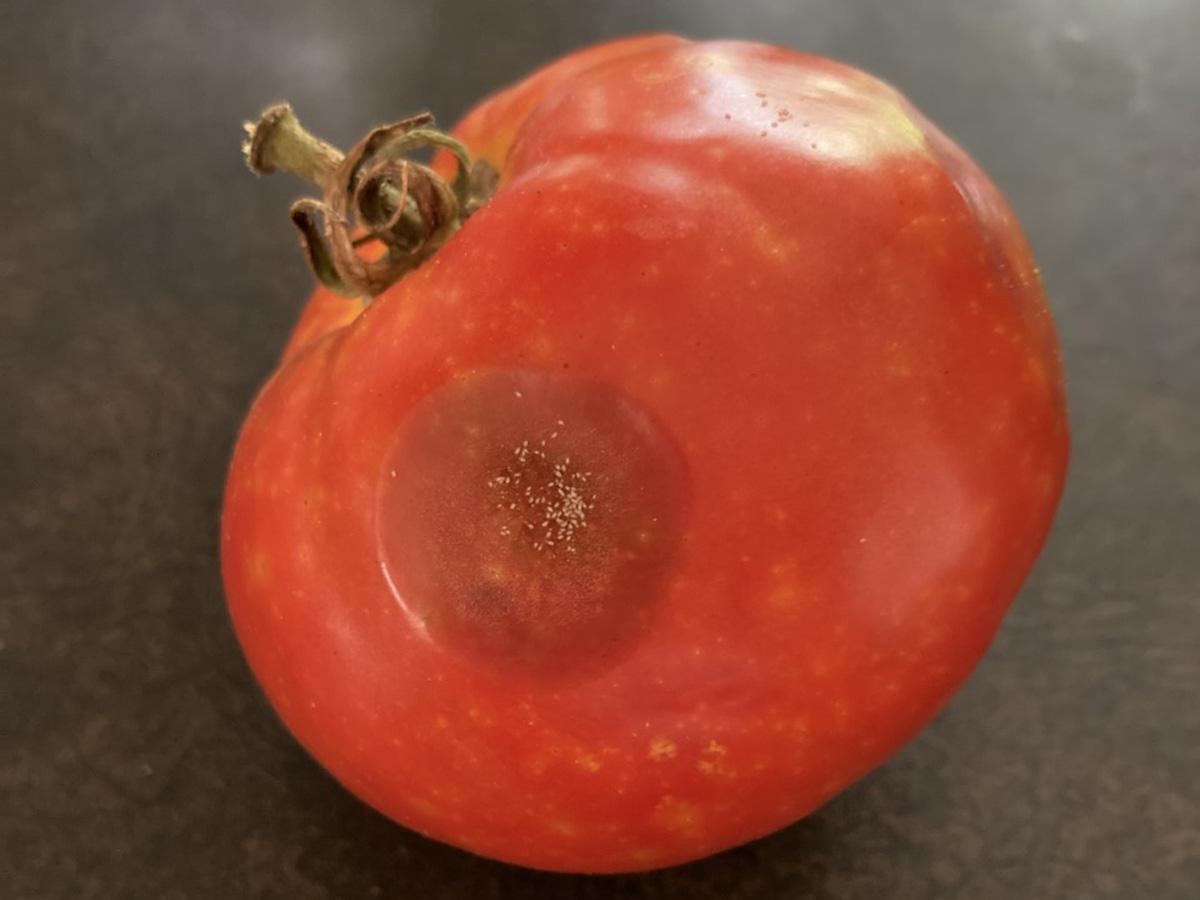
Active period and target plants
While they can feed from a wide variety of garden plants, leaf-footed plant bugs are most pesky when it comes to fruit in the veggie garden. Typically in late summer, the veggie garden is full of peppers and tomatoes, both of which are very popular with leaf-footed plant bugs. They indiscriminately travel from fruit to fruit, sucking juices from the flesh. By piercing the skin with their mouth parts, they allow bacteria and fungi in. The fruit then develops ugly spots that spread. Soon the entire fruit rots. They also poop all over the skin of fruit, which is just nasty. This behavior compromises one of the highlights of our summer—fresh salsa. I can honestly say leaf-footed plant bugs are the only insects, besides fire ants, that we make an effort to eliminate. Fortunately, there are a few different avenues you can choose to control this pest.
Methods for control
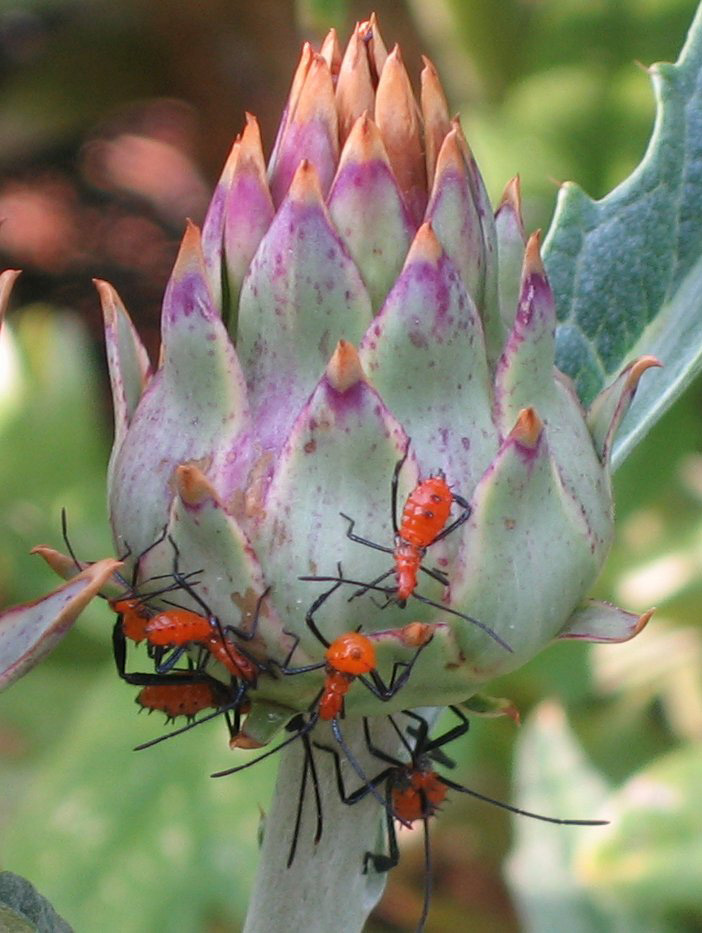
Handpicking should begin early. The tiny nymphs of Eastern leaf-footed plant bugs have red bodies and black legs. At this stage they cannot fly and can easily be handpicked and squashed. Unfortunately, the adults can fly. They are identifiable by a white stripe that runs horizontally across their brown bodies. The best way to deal with adults is a jar of soapy water. Just hold the jar below the insects and tap them into it. A jar full of drowned pests can be strangely satisfying. Let’s be honest though—it takes a lot of time to eliminate all of those bugs by hand. Spraying would be easier.
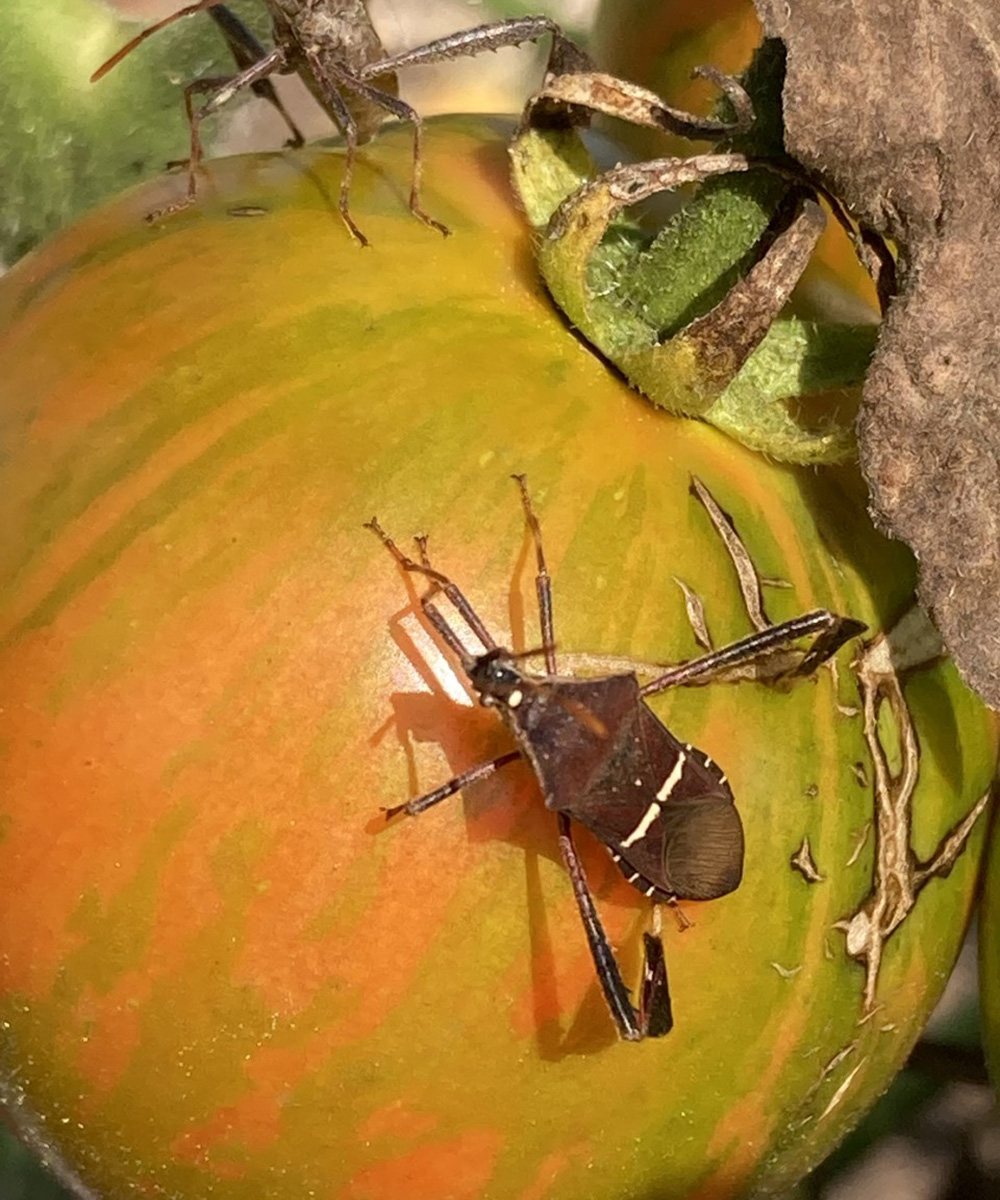
Spinosad, a bacterial by-product, is considered organic and has been fairly effective for us. It works best if you can spray it directly on the insects, but an application on the plants themselves seems to help protect fruit until the rain washes it off.
Trap crops are another option if you have the space to plant them. Sorghum grasses (Sorghum spp. and cvs., Zones 8–11) and sunflowers (Helianthus spp. and cvs., Zones 3–9) are two trap crops that Auburn University in Alabama has successfully used to control leaf-footed plant bugs in experimental plantings. The crops are planted two weeks ahead of fruiting crops and then sprayed for the insects when the infestation gets heavy. This avoids needing to spray the tomatoes or other veggie crops themselves, but it does require a traditional insecticide to be applied to the trap crop.
Screening can be used as a barrier to keep the bugs off the fruit. Micromesh is readily available. However, care does need to be taken to ensure there are no gaps that the bugs can fit through, and this method may require you to play tomato pollinator yourself.
Leaf-footed plant bugs are one of the most annoying insects in Southern summer gardens, but there are many options for dealing with them. Whatever you choose, don’t let them ruin your homemade salsa!
—Jason and Shelley Powell own and manage Petals from the Past, a garden center in Jemison, Alabama.
Fine Gardening Recommended Products
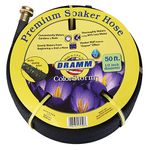
Dramm 17050 50′ ColorStorm 1/2″ Standard Soaker Hose
Fine Gardening receives a commission for items purchased through links on this site, including Amazon Associates and other affiliate advertising programs.
- Conveniently waters garden and beds
- 50 ft. by 1/2 inch diameter made from recycled material; lifetime guarantee
- Made in the USA
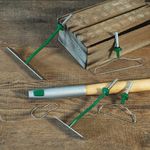
Johnny’s Selected Seeds Connecta® Cultivation Kit
Fine Gardening receives a commission for items purchased through links on this site, including Amazon Associates and other affiliate advertising programs.

Morvat Heavy Duty Brass Y-Valve
Fine Gardening receives a commission for items purchased through links on this site, including Amazon Associates and other affiliate advertising programs.
- Fitted with US Standard NH 3/4" threads for use with most water source fittings
- Screw the 2 way splitter adapter by hand or wrench with the updated hexagonal top connection. The 360° rotatable swivel connection attaches to any water source.






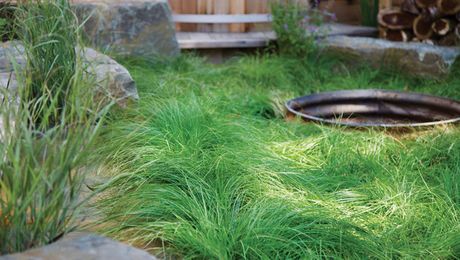











Comments
Log in or create an account to post a comment.
Sign up Log in